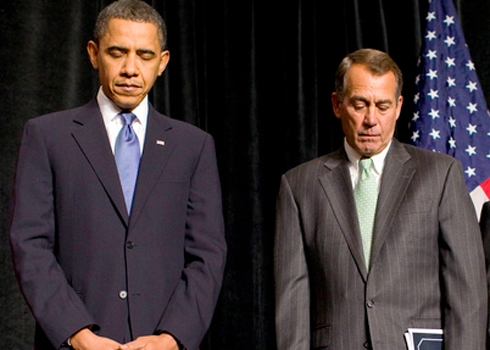Short piece from July on how the language of austerity (and “shared sacrifice”) is being used in the national debate around debt, stimulus, and taxes. The gist:
The language of austerity has so far benefited the Republican position, which is all cuts and no taxes.
The piece links to Nancy Pelosi’s statement of July 25 that:
“It is clear we must enter an era of austerity; to reduce the deficit through shared sacrifice.”
Read: Whatever The Outcome Of The Debt Vote, The Age Of Austerity Is Here | Talking Points Memo.
The word austerity has broad power as a framing device. In the news, it appears most frequently to describe national policies outside the U.S.: European politics in general seems centered on political debates about whether and how to implement “austerity measures.” Austerity crops up sometimes in discussions of balancing the federal budget, but I think that it has more politically complicated connotations in the U.S., despite the popularity of cries to “shrink government.” For the same reason that a language of consumption dominated political speeches after the 2000-2001 recession, politicians today have balance any calls for austerity with the perpetual narrative of America’s prosperous destiny. Part of my project is to understand that balance, the evolution of austerity in political debate this year (it’s now December, six months after Pelosi hopped on board the language of shared sacrifice, and it remains politically muddled).
